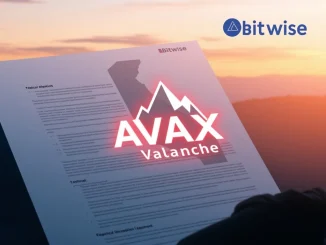
Big news in the world of crypto finance: The SEC Ethereum ETF landscape just got more complex. While the market awaits potential approvals for spot Ethereum ETFs, a new hurdle has emerged specifically for products that include staking exposure. The U.S. Securities and Exchange Commission (SEC) is reportedly raising significant questions about proposed staking-enabled Ethereum (ETH) and Solana (SOL) ETFs.
What’s Happening with Proposed Staking ETFs?
Firms like REX Financial and Osprey Funds have filed plans to launch ETFs that wouldn’t just hold ETH or SOL, but would also stake the underlying assets to earn yield. This is a key difference from the spot Bitcoin ETFs approved earlier this year, which do not involve staking.
However, according to a Bloomberg report, the SEC has flagged a major concern: whether these products qualify as investment companies under federal securities law. This is a foundational legal point that must be satisfied for the funds to proceed.
Why is the SEC Questioning Investment Company Status?
The core of the SEC’s concern appears to revolve around how the staking activity might change the nature of the fund. Here’s a simplified look at the potential issue:
- An investment company typically holds securities or other investment assets.
- Staking involves locking up assets to support a network and earn rewards. This activity could be viewed as engaging in an operational business (supporting the blockchain) rather than simply holding investments.
- If a fund is deemed to be operating a business, it might not meet the definition of an investment company under the relevant acts, such as the Investment Company Act of 1940.
This legal classification is critical for regulatory oversight and investor protection.
Implications for the SEC Solana ETF and ETH Staking Aspirations
This questioning directly impacts firms hoping to bring staking products to market. REX Financial’s general counsel, Greg Collett, has acknowledged the SEC’s concerns regarding the investment company question. While REX believes it can address these issues, they have stated they will not launch their funds until they satisfy the regulator.
This development highlights the ongoing regulatory challenges facing innovative crypto products. While a spot SEC Solana ETF or ETH staking ETF might seem like a natural evolution after Bitcoin ETF approvals, staking adds a layer of complexity that regulators are scrutinizing carefully.
What Does This Mean for Crypto ETF Regulation?
This situation underscores that the path for crypto ETF regulation is far from uniform. Each new feature or underlying asset class presents unique questions for the SEC. Staking introduces elements of network participation and yield generation that differ from simply holding an asset.
The SEC’s stance here suggests they are taking a cautious approach, ensuring that any approved product fits within existing legal frameworks designed to protect investors. This careful examination could potentially delay or alter the structure of future staking-enabled crypto ETFs.
What’s Next for SEC Ethereum ETF and SEC Solana ETF Hopefuls?
Firms like REX and Osprey must now work to convince the SEC that their proposed fund structures comply with the definition of an investment company, even with the staking component. This could involve legal arguments, structural adjustments to the funds, or providing more clarity on how the staking operation fits within the fund’s overall purpose.
The outcome of these discussions will set a precedent for future applications involving staking. It’s a crucial moment for the evolution of regulated crypto investment products in the U.S.
Summary: A Regulatory Hurdle for Staking ETFs
The SEC’s questions regarding the investment company status of proposed ETH staking ETF and SOL staking ETF products from REX and Osprey represent a significant regulatory hurdle. This focus on the legal classification, potentially complicated by the staking mechanism, shows the SEC’s careful approach to integrating novel crypto features into traditional financial structures. While firms are working to address these concerns, the path to launching staking-enabled ETFs in the U.S. faces increased scrutiny, highlighting the evolving nature of crypto ETF regulation.



